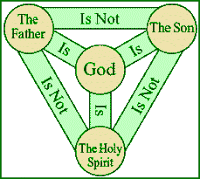To begin study of Jesus in Exodus as the
Passover, we must define the compound word.
As always, using Webster's 1829 dictionary;
Pass - "to move from one place to another"
Over - the opposite side.
Together
Passover means "to move from one place to another to the opposite side." In the book of Exodus we understand that is just what happened to the enslaved Hebrews. Scripture reports that their lives were "made bitter with hard bondage."
Exodus 1.14 opens with the children of Israel as slaves in Egypt. For nearly 430 years, according to history, this had been so.
In another epic tale of the Majesty of the Lord, God gave a leader by the name of Moses. Of course, if one follows the story, Moses was taken in by the Pharaoh's daughter as a baby. Thus, Moses was raised up in the house of Pharaoh. However, there came a day when Moses learned of his true heritage of the Hebrews rather than the Egyptians, paving the way for how the Lord would use Moses to deliver the people from such "hard bondage." But that is not where we will seek the name of the Lord.
God told Moses to tell Pharaoh, "let my people go." Ten times Moses went to the highest authority in the land, ten times Pharaoh "hardened his heart" and ten times God sent plagues as Pharaoh rejected the Lord's will.
The Plagues:
- Water into blood (Ex 7:14-24)
- Frogs (Ex 7:25-8:15)
- Lice (Ex 8:16-19)
- Flies (Ex 8:20-32)
- Diseased livestock (Ex 9:1-7)
- Boils/sores (Ex 9:8-12)
- Hail and fire (Ex 9:13-35)
- Locusts (Ex 10:1-20)
- Darkness for three days (Ex 10:21-29)
- DEATH of all the firstborn (Ex 11:1-12:36)
Until the tenth plague, Pharaoh, though bothered, didn't heed Moses' warning and directive of the Lord's word. Moses told Pharaoh the "death angel" was coming by on a certain night. You see, he had folks to clean up after the first nine plagues and had money enough to restore all lost because of the plagues. Although the plagues affected him it didn't affect him that bad. Ah, but one does not reject the Word of the Lord indefinitely without dire consequences! The tenth plague, death of ALL the firstborn, from the "King's house to the poor man's house," struck at what was obviously the point of his rejection. As long as his family was safe, there was nothing to worry about. You see, when you harden your heart to the will of God and His Word, it not only affects you but others around you.
Before the Lord executed the tenth plague, HE made a way of escape for the Hebrews. Moses may have given Pharaoh this instruction also but we are not told that in scripture.
- The Lord gave instruction, through His preacher, to "prepare a lamb."
- This lamb was to be a yearling, without spot or blemish, young and tender. (Ex 12.5-7)
- This lamb was be killed and its blood "applied to the door posts of each home."
- The blood was to be put at the top, left and right of the door posts.
- This sacrificial blood would be above them, on both sides of them and below them as it would drip down.
When the "death angel," as ordered by God, passes through each home in Egypt that dark night, the only homes spared death of the firstborn would be those that had the blood applied.
Ex 12.13 reads: "When I see the blood I will
passover you."
Passover,
moved from one place to another to the opposite side.
So, they were "moved from one place to another" or toward the Promised Land when they left Egypt.
- Where is Jesus as the Passover?
- Who was the "Lamb that taketh away the sins of the world?" (Jn 1.29)
- Who is known as the "Lamb that was slain before the foundation of the world?" (I Pet 1.19, 20)
So if the slain lamb is a picture of the Lord Jesus,
would it reason to say that if one believes in the Lord Jesus Christ and the salvation from death His blood brings, one would be saved from death/eternal damnation?




